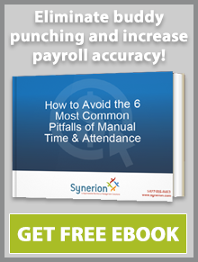 Work efficiency has always been a complicated mechanism between employee and employer. The employer wants 100% all the time, but research has shown the longer your employees stay chained to their desk, the more their production drops. To counter this, many employers have had to create their own balance between productively and breaks. What they’ve found is that more employees will up their productively, even if they seem to work less.
Work efficiency has always been a complicated mechanism between employee and employer. The employer wants 100% all the time, but research has shown the longer your employees stay chained to their desk, the more their production drops. To counter this, many employers have had to create their own balance between productively and breaks. What they’ve found is that more employees will up their productively, even if they seem to work less.
Mental Fatigue
The biggest factor in productivity loss is mental fatigue. Mental fatigue is the state that happens after long periods of focused concentration. It can happen in any type of workplace, an office or a factory. Thankfully mental fatigue can be countered by simply encouraging employees to take breaks. Breaks give you time to rest and refocus. Many employees feel ready to tackle tasks after a quick coffee break or walk around the office.
Distractions
Distractions are probably the second most common cause of work efficiency loss. Employees who are easily distracted have troubling focusing on the task ahead of them. Whether it's a desk that's too high or a flickering light, these items pull the focus away from completing tasks.
By identifying issues that distract employees, you assist them in focusing. Often, the distraction can be moved or modified so that it doesn't distract employees. However, in certain instances, such as flickering lights from a window, it might be best to move your employee to a less distractive area.
Less Multi-tasking
Even though we might think multi-tasking makes your employees more efficient, it doesn’t. Multi-tasking increases mental fatigue and often leads to overworked employees. If an employee is working on several projects at once, their work will suffer because they’re pulled in several directions at once. Luckily, solving this issue is easy. Assign employees’ different tasks with different due dates and list which ones are priority to do first.
Identify Other Reasons
While some reasons are obvious, there can be other reasons your workforce has low work efficiency. Identify employees who are procrastinators or who might be bored. Perhaps your employees haven't received enough training and need a mentor. Perhaps there're personal issues you’re not aware of.
Breaking down assignments into smaller tasks that employees can check off can help those who tend to procrastinate. For employees that need more mental stimulation, find them a challenging project. Assign mentors and bring in training to improve task mastery inside your company and handle personal issues with tact and care.
Rewards
One last thing that usually improves workplace efficiency are rewards. This shows employees you appreciate all of their hard work. Rewards can be as simple as a mention in the company newsletter or a much grander show of appreciation.
Workplace efficiency is a problem for all businesses. To improve it, you need to identify the causes and create a plan to counter the issues.
